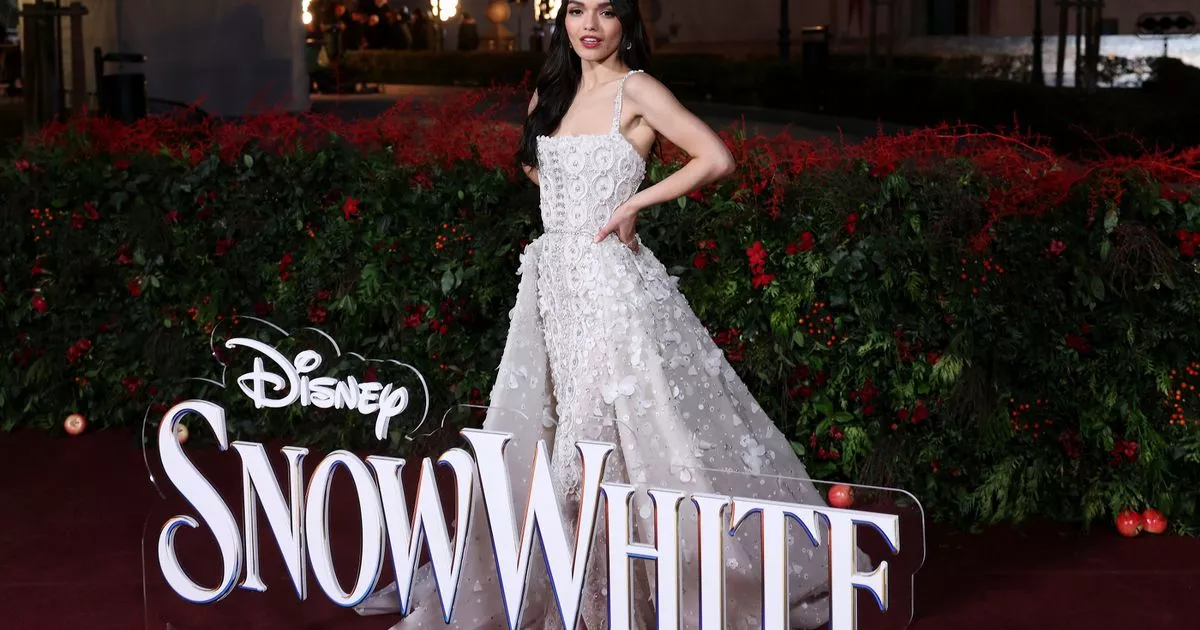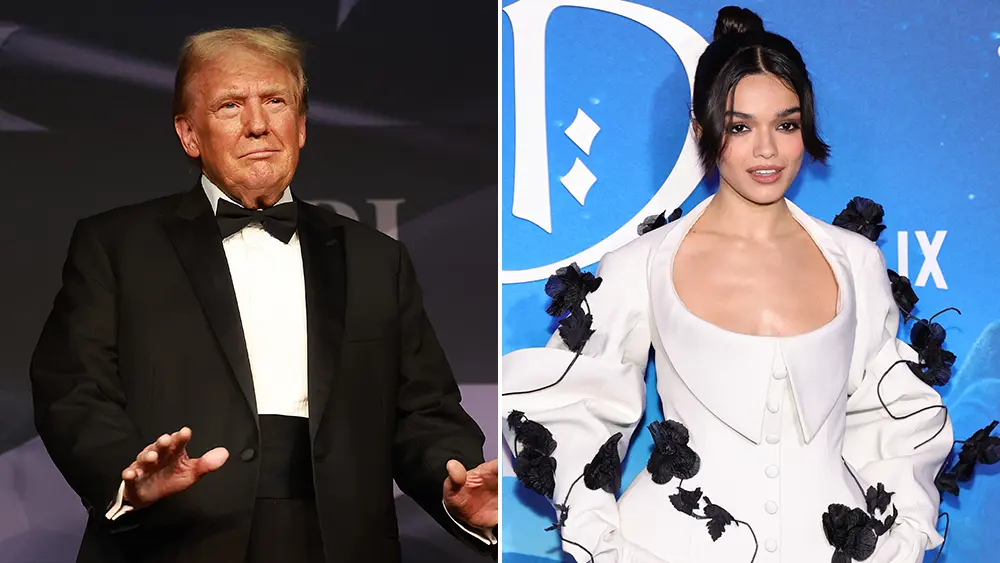Recent events have highlighted a critical intersection between the entertainment industry and the escalating tensions in global politics. Disney, known for its family-friendly image and vast array of beloved characters, has taken significant steps to ensure the safety of actress Gal Gadot after she received death threats in response to her pro-Israeli stance during the ongoing Israel-Hamas conflict. The backlash intensified when Gadot’s co-star, Rachel Zegler, expressed her support for Palestine, which brought intense scrutiny and vitriol directed at both actresses. As threats mounted, Disney implemented additional security measures to protect its star, reflecting the complex challenges faced by celebrities in today’s politically charged climate.
Gadot, widely recognized for her role as Wonder Woman, garnered both admiration and criticism for her statements. Following a violent attack in October 2023, she voiced her unwavering support for Israel, urging the world not to remain passive in the face of terrorism. The situation escalated further during a promotional event for the upcoming live-action adaptation of Snow White, igniting a wave of social media backlash aimed not only at Gadot but also at Zegler for her peace advocacy. This article delves into the implications of these events within the broader context of celebrity culture, public relations, and the resultant need for heightened celebrity safety in Hollywood.
Background on the controversy surrounding Gal Gadot and Rachel Zegler
The recent hostility surrounding Gal Gadot stems from her public statements aligned with her home country during a time of conflict. Following the tragic assault at the Nova Music Festival, which involved numerous casualties and shock across the world, Gadot felt compelled to voice her support for Israel. Using her platform on social media, she stated, “I stand with Israel; you should too,” emphasizing her belief that the world cannot be indifferent to acts of violence. This resonated deeply with supporters but drew ire from those who perceived her statements as insensitive given the simultaneous promotion of a Disney film.

The impact of social media on the situation
Social media has fundamentally transformed how celebrities interact with their audience. Gadot’s comments ignited a firestorm, leading to intense scrutiny over her and her co-star Zegler. In a separate incident in August 2024, Zegler posted a message thanking fans for their support amid the film’s marketing campaign and remarked, “and always remember, free Palestine.” While many praised the intent behind her words, others pointed fingers at Gadot, arguing that such remarks ignored the complexities of the ongoing conflict.
This dynamic has put Disney in a precarious position; as a major entertainment company, they must balance their artists’ freedom of speech with the potential repercussions tied to political affiliations, particularly when an increasingly polarized audience is watching. Disney’s decision to hire more security personnel for Gadot underscores how delicate this balance is and reflects the growing concern over public relations in the entertainment sector.
Here is a table summarizing key events related to this controversy:
| Date | Event | Reaction |
|---|---|---|
| October 2023 | Gadot voices support for Israel | Mixed; support from pro-Israel audiences, backlash from others |
| August 2024 | Zegler posts message supporting Palestine | Polarized audience reacts; intensified scrutiny on Gadot |
| March 2024 | Disney heightens security for Gadot | Critics question Disney’s handling of the controversy |
The role of Disney in managing a celebrity’s public image
As a frontrunner in the global entertainment landscape, Disney faces unique challenges when it comes to managing the public images of its stars, particularly in light of major incidents that can impact company reputation and revenue. The digital age, characterized by instantaneous communication and public discourse, puts celebrities and organizations alike under a microscope. When controversies arise, stakeholders often scrutinize how companies navigate these issues, making echelons of public relations strategy and celebrity nurturing increasingly essential.

Challenges faced by Disney
Disney’s multifaceted approach includes concerns for its stars’ safety and the message they send through their public declarations. Managing the fallout from Gadot’s and Zegler’s statements requires navigating the often-tumultuous waters of political commentary in the entertainment realm. This effort becomes particularly daunting when mixed emotions spill into fan engagement on social media platforms like X (formerly Twitter) and Instagram, where instantaneous responses can amplify sentiments multifold.
Gadot’s situation showcases some pressing questions for corporations like Disney. Do they prioritize artistic freedom or focus on maintaining brand integrity? Should they take a more active role in advising talent against political statements, considering the risks involved? Ultimately, each choice carries consequences in terms of audience loyalty and financial backing.
Safeguarding actress’s well-being
The surge of violent threats against Gadot highlights a particularly grim reality for many figures in the entertainment industry—security measures are becoming increasingly critical. Protecting celebrities requires complex logistics, with added planning and resource allocation as seen in Gadot’s case. As the lines blur between personal beliefs and public persona, the safety of influential figures remains a top priority.
Companies often employ advanced security systems and teams, liaising with local authorities while working closely with event organizers to create safe environments. Notably, the rise in social media has also catalyzed an influx of online threats, leading to conversations about celebrity safety protocols. Recognizing these challenges indicates a proactive approach to risk management, signifying that modern companies must adapt to shifting cultural landscapes.
Cultural implications of political commentary by celebrities
The interplay between celebrity culture and political engagement ingrains itself in Hollywood’s societal matrix. As audiences seek authenticity from their favorites, public figures are often placed in positions where they must navigate personal beliefs alongside their artistic contributions. The landscape fosters polarization—a trap that celebrities can inadvertently fall into when making statements on sensitive issues. Gadot’s experience is emblematic of this dynamic, illustrating how quickly public opinion can shift based on perceived alignment or deviation from industry norms.
Understanding the audience’s perspective
Fan responses vary widely; some are drawn to the social aspects of celebrity uprisings in values and causes, while others maintain skepticism, questioning motives and the implications of their statements. This has put pressure on stars to articulate thoughtfully while managing the expectations of their audiences. Zegler’s call for Palestinian advocacy, even when well-intentioned, brought forth points of contention that characterizations of her relationship with Gadot were even more pronounced due to the ongoing conflict’s controversy.
Hollywood’s celebs need to recognize the power of their platforms. They are not merely entertainers, but also influential figures that can spark necessary dialogues. However, navigating these discussions is an evolving art, often requiring them to develop skills of careful communication rooted in cultural sensitivity.
Re-evaluating the relationship between celebrities and political discourse
As this narrative unfolds, the question persists regarding how much a celebrity’s political voice should matter in the eyes of their audience. While political dialogues extend beyond palatable entertainment, they can also alienate sections of the fan base. This dynamic presents an ongoing challenge for industry players, particularly for companies like Disney who champion including multifaceted narratives within their content without escalating conflicts.
Be it through nurturing artistic expressions or endorsing particular movements, navigating these conversations leaves companies walking a fine line, which pivots swiftly depending on public sentiment. It becomes vital for Disney to consider how it aligns its interests while satisfying a diverse audience. As news progresses, the politics of public figures will be intricately linked to the evolution of the entertainment business.
Examining the massacre in the entertainment industry response
In the wake of growing instability and threats toward celebrities, the entertainment industry must critically examine both its practices and policies. Larger corporations like Disney have a responsibility to safeguard not only stars but also their grassroots approach to activism and fan engagement. The realities faced by Gadot may serve as a catalyst for broader discussions that shape how the industry reacts to similar crises in the future.

Reevaluation of company policies
Amid the ongoing fallout from instances like Gadot’s, Hollywood must adopt a robust reevaluation of safety protocols. Companies need to build frameworks that weigh the realities of threats against the fundamental freedoms associated with being a public figure. Considerations need to include personal and psychological well-being and the strategic measures the industry implements to create healthy dialogues even amid Opposition.
Disney’s experience underscores how the geopolitical landscape shifts the terrain for entertainers, emphasizing the need for holistic planning that prioritizes both personal safety and public relations. The more comprehensive companies can be in integrating security with proactive communication strategies, the better equipped they will be to navigate challenges that arise as part of the entertainment zeitgeist.
Fan engagement navigating shifting narratives
Today’s audience is more than spectators; they are active participants in the ongoing dialogues surrounding their beloved celebrities. Social media enables fans to contribute to these conversations like never before, leading to a shift in how celebrities are perceived based on shared ideologies. This evolving landscape not only connects individuals with shared beliefs but can also fracture long-standing loyalties based on political discourse.
For organizations like Disney, actively engaging audiences through community-building efforts can bridge gaps created by politically divisive commentary. Fostering spaces where discussions surrounding activism, support, and advocacy take place enhances trust while paving the way for mindful collaborations in the future.
As the world continues to adapt to societal challenges tied to media influence, it becomes essential for Disney and its peers to reaffirm their commitment to supporting talent while promoting the delicate balance between individuality and corporate responsibility. The interplay of celebrity safety, political commentary, and brand integrity remains paramount as the entertainment industry navigates its ongoing transformation in these uncertain times.
Hi, I’m Sarah, a 30-year-old journalist with a passion for storytelling and uncovering the truth. I strive to bring important issues to light and connect with my audience through compelling narratives.



